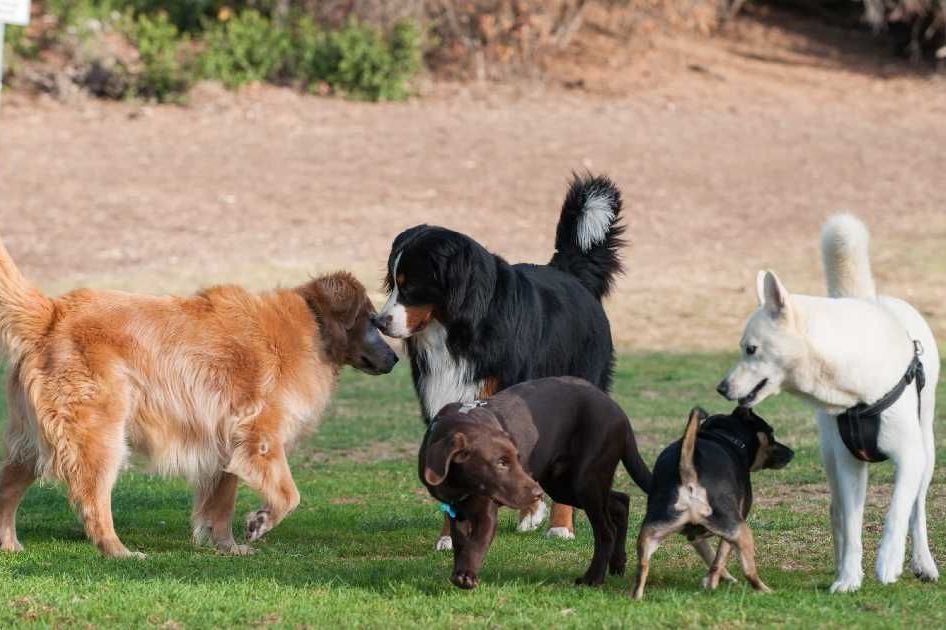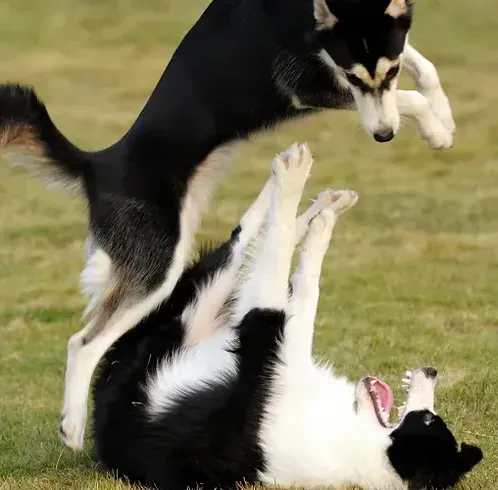Preparing Your Obedience Trained Dog For A Pawsitive Social Experience
Rewarding Your Dog’s Obedience Training Skills
The month of October brings many exciting moments: cooler weather, changing of the leaves, fall festivals, and, of course, Halloween! Once your dog has graduated from obedience training, you might be looking forward to dog-friendly fall events to bond, socialize, and enjoy new experiences together. Whether it's a local pet fair, dog park meetup, a spooky pet costume contest, or a charity walk, these events provide ample opportunities for fun and interaction. However, to make the most of these events together, it’s essential to prepare adequately and consider your dog’s comfort and safety. Let’s explore some tips to ensure both you and your well behaved dog have an enjoyable time at a dog-friendly event.
Before attending an event, it is important to do some research to understand what the event entails. Taking note of the event schedule, rules and regulations, as well as the facilities will better prepare you and your dog and ensure a smooth experience. Packing essentials can also make a huge difference when attending an event outside the home. Some must include essentials are: water and bowl, leash and harness, poop bags, treats and toys, first aid kit, and comfort items to help your dog feel more secure in a new environment. Preparing for weather conditions can prevent a good time from turning into a not so good time. Planning according to the weather will ensure your dog’s comfort and avoid significant impact to your overall experience at an outdoor event. It is recommended to avoid attending events during the hottest part of the day, and having access to a sheltered area where your dog can take a break from the heat, cold, or even the rain.
Speak With A Dog
Training Expert
Speak With A Dog Training Expert
Thank you for contacting us!
We will contact you shortly!
Please try again later.
Obedience Training Meets Adaptation
All dogs have one thing in common: the societal pressure to be a “good dog.” Adopting and raising a handicapped dog is a wonderful humane act. However, whatever limitations your dog may face does not make them immune to societal expectations. Thankfully, obedience training is an enriching activity that can be achieved by any dog, regardless of their limitations, and is the first step toward helping your dog adjust to living in a high pressure world.
The first step for a dog obedience trainer is to identify your dog’s limitations. Understanding what caused your dog's disability will give the trainer insight into how your dog needs to be communicated with, helps the trainer set reasonable expectations, and also helps your dog’s trainer avoid any pain points on your furry family member. Similar to human beings, disabilities in dogs can
Speak With A Dog
Training Expert
Speak With A Dog Training Expert
Thank you for contacting us!
We will contact you shortly!
Please try again later.
arise due to various reasons. Some dogs are born with disabilities, while others may become handicapped due to congenital or contracted diseases or injury. It is quite common for a dog to experience blindness, deafness, or experience mobility challenges that can require training modifications. An expert dog obedience trainer will be able to create a training program for your dog that will help your dog to avoid painful movement and have fun while learning new skills. Your dog’s trainer will also be able to take advantage of your dog’s heightened senses to help make adaptive learning possible. Focusing on your dog’s available senses will help you as the owner understand your dog’s strengths and weaknesses and rethink the way your dog needs to be communicated with. With all of this in mind, the obedience trainer will be able to put together an adaptive learning plan to suit your dog and its unique needs.


Preparing Your Home For A Disabled Dog
First and foremost, it is important to remind any dog owner or future dog owner that owning any pet is a lifetime commitment. It is crucial that your dog is fully integrated into your everyday life and that it knows you are dedicated to ongoing care for it. Time is an aspect of dedication towards your dog. Adopting or owning a disabled dog requires time invested into researching and understanding your dog's limitations. Time is also required for dedicated training and working with your disabled dog. A lot of patience and attention to training is needed compared to a fully able dog, and alternative training techniques created by a professional trainer can be time consuming.
The financial responsibility of caring for a disabled dog is another factor to consider when making this life long commitment. While some disabilities do not require medical intervention, others may require ongoing treatment or medical expenses is the disability has the potential to worsen as the
Obedience Training Prepares Your Dog For Fun!
You might be feeling more comfortable knowing all the details of the outing, what to take with you for your dog, and how to prepare for the weather. However, a common source of anxiety for all dog owners is behavior expectations of their dog. Remember: once your dog has finished obedience training, you and your dog have all the tools you need to confidently set foot into a social environment. Not only are you able to communicate more effectively with your dog, but you have witnessed first hand how your dog responds to commands and positive reinforcement. Before attending a social event, ask yourself: Is my dog comfortable around other dogs and people? If the answer is no, it would probably be best to continue behavior training in order to identify your dog’s triggers and responses to stressful situations. If the answer is yes, take courage and remember everything you just learned from professional dog training.
Practice beforehand! If your dog is not accustomed to large gatherings, start by taking them to smaller events or dog parks to build their confidence. Keep an eye on your dog’s body language to ensure they are not stressed or overwhelmed. Signs of discomfort include tail tucking, ears back, and excessive panting. And don’t forget the treats! Positive reinforcement is key for encouraging your dog to stay calm and happy in social situations.
Knowing your dog’s limits is crucial when taking your dog to a social event. Every dog has different tolerance levels for excitement and activity. If your dog seems tired or stressed, it’s okay to leave the event early! Don’t forget to document the fun times you and your dog have at these events. Capturing memories helps you cherish the moments and share them with others. After a fun filled day, remember to provide hydration and a nutritious meal for your dog, especially if they have been active! Provide a quite and comfortable space for your dog to rest and check your dog for signs of injury, pests, or unusual behavior. Remember, a little planning goes a long way in ensuring a fun and stress-free day for both you and your furry best friend!
dog ages. Tools are another financial investment needed to help a dog’s limitations adapt to its environment. For example, a head collar or halter may be needed to help a blind dog navigate new spaces by preventing it from bumping into barriers. If your dog has a mobility handicap, a dog cart or lifting harness can be used to help your dog move around without much pain. Private obedience training classes are also another crucial investment for helping you and your dog adapt to its lifestyle in its home and social environments. An obedience trainer will help you teach your handicapped dog how to associate obedience with good things through positive reinforcement. The trainer will also help you learn how to be observant to your dog's signals and cues for communicating its needs. The obedience trainer will also help to nurture a great relationship between you and your handicapped dog by prioritizing simple obedience instructions for you and your dog to learn together.
Dogs are remarkable creatures. Owning a dog with a handicap can help you learn new ways to look at and adapt to the world around you. While a dog’s disabilities can make obedience training more challenging, Enrolling your disabled dog into an obedience training program will expand their ability to live a full and rewarding life.
